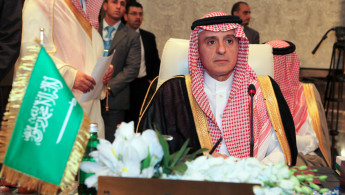Saudi Arabia rejects any role for Assad during Syria transition to peace
Saudi Arabia said that it still supported an international agreement on the future of war-torn Syria but reaffirmed that Bashar al-Assad should have no role in any transition to end the conflict, Riyadh said on Sunday.
Several media reports, including from Russia Today's Arabic service, reported earlier that Saudi Foreign Minister Adel al-Jubeir had told the Syrian opposition's High Negotiations Committee (HNC) that it was considering a transitional first phase where Assad would remain in power.
A statement carried by the Saudi state news agency SPA called the reports "inaccurate", while Syria's main opposition body also denied the claims.
"The position of the kingdom on the Syrian crisis is firm, and it is based on the Geneva 1 communique and on UN Security Council resolution 2254 that stipulated the formation of a transitional body that will run the country," the Saudi statement said.
The agreement also called for new elections with no role for Assad in any part of the transitional process, while urging the drafting of a new constitution.
Saudi Arabia said it supports the HNC and its efforts to widen the body's membership and unify the Syrian opposition, the statement added.
'Incremental progress'
The Saudi announcement comes ahead of a new round of UN-led peace talks expected in September.
In July, the last round of sputtering negotiations ended in Geneva with the Syrian envoy to the UN declaring that "incremental progress" was made.
It drove hope that face-to-face talks between the opposition and Damascus regime may soon be possible.
The Saudi-backed HNC has long insisted political transition means the departure of Assad.
Regime delegation, led by Syria's UN ambassador Bashar al-Jaafari, declared the president's fate off limits.
The Geneva talks have been increasingly overshadowed by a separate process held in Astana and organised by Russia, Iran and Turkey.
In May, the powers agreed to establish four "de-escalation" zones in opposition-held areas in what was hailed as a potential breakthrough towards calming the deadly war.
The HNC has criticized the zones, rejecting them as a partitioning of the country.
Agencies contributed to this report.





 Follow the Middle East's top stories in English at The New Arab on Google News
Follow the Middle East's top stories in English at The New Arab on Google News

![Israeli forces ordered bombed Gaza's Jabalia, ordering residents to leave [Getty]](/sites/default/files/styles/image_330x185/public/2176418030.jpeg?h=a5f2f23a&itok=_YGZaP1z)
